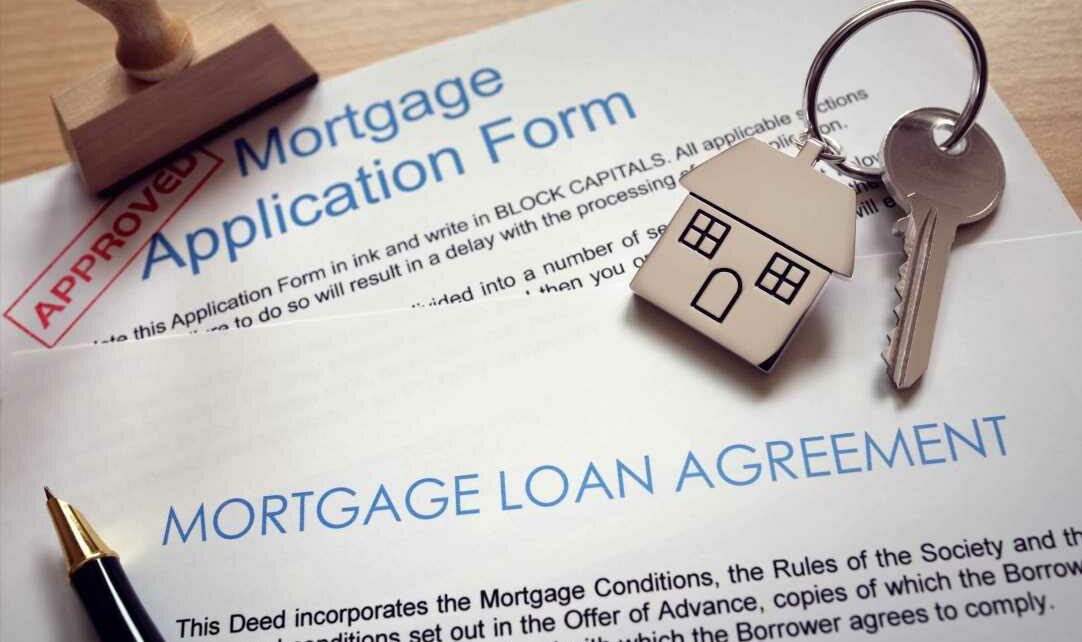IF you are looking to buy a new home or remortgage you might be wondering how long your mortgage application will take.
It can vary depending on a number of factors but we have pulled together everything you need to know.

Getting approved for a home loan can be a challenge, especially at the moment since mortgage rates are going through the roof.
Usually people apply for a mortgage over 25 years – the time it takes to pay it off.
You can choose a longer term though – it's becoming more normal for people to take up to 35 or even 45 years to pay off their mortgage.
Choosing a longer term will bring your monthly repayments down but will mean you also pay more interest over the course of the mortgage.
Read more on Money

EasyJet refused to refund £255 baggage fee after glitch – how to get money back

I tested Heinz BBQ sauce dupes – a bargain is third of the price and BETTER
Once you have found the house you want to buy you can apply for a mortgage.
If you use an independent mortgage broker, they can access deals from lots of different lenders and they'll help you choose the one that's right for you.
Many brokers don't charge for this service, and instead are paid a small percentage commission by the lender when you complete.
You can also apply directly to a bank or building society but you'll be limited to their own deals.
Most read in Money

Rescue firm behind Laura Ashley 'enters talks' to save Wilko's 400 stores

Fresh hope for Wilko as 'rescue' firm enters talks to save the high street fave

Households urged to check for letter on doormats – or miss out on £450 free cash

Martin Lewis' urgent warning as anyone with savings account could lose £1,000s
One important thing to bear in mind is that a mortgage is secured against your property so if you fail to pay it you could lose your home.
How long does a mortgage application take?
Usually, a mortgage application takes two to six weeks to be approved.
But of course, every situation is different and could depend on a few key factors.
This includes the lender you apply to, what information they've asked you for, and how complex your situation is.
The process can be accelerated if you use a mortgage broker who will be able to find you the best deals.
Usually, the application process happens in these steps:
- Contact your lender or mortgage broker who will help you find a deal
- Make the application
- Wait for the lender to give you a decision in principle
- Begin the paperwork with your solicitor
- Your lender will instruct a mortgage valuation on the property you want to buy
- Once they are happy with your finances and the property details, they approve your application
- Then your solicitor can authorise the completion of your home purchase after all the legal points have been resolved
What documents do I need to apply for a mortgage?
You will need to make sure you have all the right documents in order before applying for a mortgage, and there are a lot of them.
The three main categories are proof of ID, proof of income and proof of expenses.
Lenders will also look at your credit score before they decide to lend to you, so it's important that you've got a good score before you apply.
Here is a list of documentation that you will need to have ready, but bear in mind different lenders may ask for different things.
- Current photo passport or driver's licence
- Most recent utility bill (gas/electric etc)
- Bank statement or credit card bill
- Payslips
- Self-assessment tax return forms (if self-employed) or accounts signed off by a registered accountant if you are VAT registered
- Credit check report
- Evidence of where your deposit is coming from – such as a savings account or a letter confirming you are receiving a deposit gift or inheritance
How to apply for a mortgage
You'll need to save a deposit before you can get a mortgage.
The average for first-time buyers is £50,000, although in many parts of the country you can buy with a much smaller deposit.
For example, to buy a property for £100,000, you could get a mortgage with a £10,000 deposit, providing you can afford the repayments.
When you have found the house you want you can apply for a mortgage.
What kind of mortgage you can afford will depend on your financial situation.
This will depend on factors such as your earnings, how much you spend a month and the deposit you are putting down.
Luckily, there are many online calculators are available to help you estimate what mortgage you can afford.
Check out price comparison sites such as MoneySuperMarket, Compare the Market, Confused.com or others.
Most people get advice from a mortgage broker.
Brokers work for you and by law they must recommend the most suitable mortgage for you given your specific circumstances.
Advisers who work for banks and building societies may be able to help you choose the best deal from their own range of mortgages.
In some cases, they will only be able to provide you with information and you will have to decide for yourself which deal you want.
If you do choose to use an independent broker, you may be able to get better deals than ones offered directly by the lender.
And if your mortgage turned out to be unaffordable then you can complain to the firm and the Financial Services Ombudsman and could receive compensation.
Some brokers provide mortgage advice for free and earn a commission from the lender – usually around 0.35% of the size of your loan.
If you took a £100,000 mortgage, this means they would earn £350 in commission from the lender.
Some brokers charge an advice fee on top, which can be anything between £100 and £500.
It doesn't matter whether you go for a broker charging a fee or not – you will get the best advice to suit your circumstances.
It's up to you – speak to a few brokers and mortgage advisers and choose someone you like.
Make sure that they are registered on the Financial Conduct Authority's list of regulated firms – you can visit their website to search.
Once a formal mortgage offer has been made it is usually valid for six months.
If you haven't completed your home purchase by then, either you can apply for an extension from your lender or you may have to reapply for a new rate.
You should expect to receive your first mortgage payment notification within five to seven working days of completion.
There are a number of ways you can boost your chances of being accepted for a mortgage.
Read More on The Sun

Discount high street store to open in former M&Co locations – is one near you?

Woman reveals clever trick to avoid losing your hotel key card while on holiday
And here is a full list of banks cutting mortgage rates, and what that means.
We also explain what a tracker mortgage is and how exactly they work.
Source: Read Full Article

